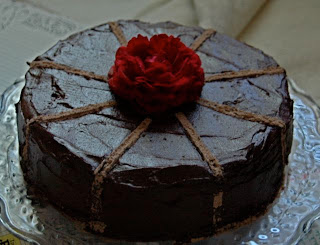 The way we perceive color starts when a photon, artificial or from the sun, hits an object - well, one molecule of that object. The properties of the reflected light, and thereby the color we see, depend on the wavelength of the original photon, the chemical make-up of the pigment molecule, and even the angle at which the light hits the object.
The way we perceive color starts when a photon, artificial or from the sun, hits an object - well, one molecule of that object. The properties of the reflected light, and thereby the color we see, depend on the wavelength of the original photon, the chemical make-up of the pigment molecule, and even the angle at which the light hits the object.Variations in color can also be caused by the amount of light hitting the color. Our perception of color depends so much on abundant light that, lacking it, the color sensing cells in our eyes "turn off", leaving simple black and white perception cells with full responsibility for providing us with sight. The light we depend on to see color is itself unclassifiable. The full spectrum of light is an ever-changing blend of colors, seen or unseen, that has no boundaries.
Whether we try to categorize color by wavelength or chemical composition, we still can't seem to define it. Try explaining red to a blind person. To people, the concept of red is hard to grasp and explain because there are no limits to what red can be; it is impossible to mark the boundaries of color.



